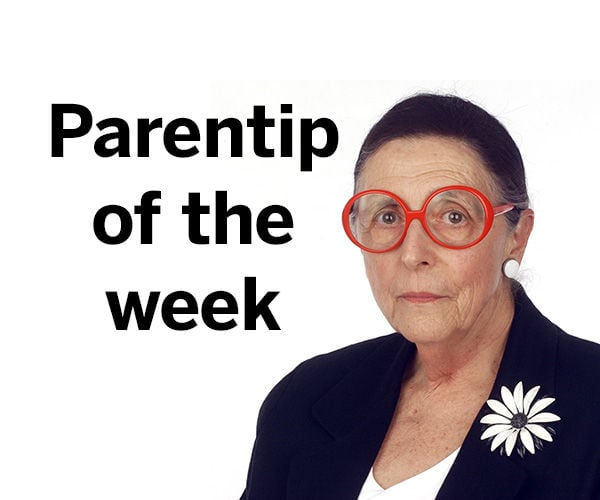A bunch of how-do-I-get-my-child to-give-up-the-pacifier questions have crossed my computer screen recently, including one from my daughter–in-law. These inquiries all involved a child in preschool, between ages 3 and 4, who willingly obeys the rule about no pacifiers at school but still wants one at home when hurt, unhappy, or trying to fall asleep.
Babies come into this world ready and eager to suck because that is the only way a baby can feed. Eating feels good because it alleviates hunger, which feels bad. Sucking movements may continue after a feeding because it also feels good and baby associates it with the breast or bottle.
Parents don’t get upset seeing a baby suck on a thumb or pacifier because all babies do it, and we like to see a content baby. Non-nutritive sucking also has a more important purpose. The baby has figured out a good way to self-soothe. “Look, Mommy, I can fall asleep on my own when I suck on my Binky. I don’t need you. Good night.”
Growing up is hard to do. Babies get cranky and needy just as we grownups do, especially when tired or hurt. How many times have you seen a toddler fall, cry while Mommy soothes the boo-boo, and then ask for the pacifier? The child wants to suck to get that familiar feeling of self-soothing. Also, at around age 3, children develop several other “tensional outlets,” such as hair-chewing and nail-biting. When children are stressed, they default to these habits. Not any different from smoking or drinking, except what the child does is less dangerous.
Why do parents later get so upset with pacifier use? Because it makes our children look babyish when we want them to look and act their age. Why do we want this? All parents have a built-in comparison-meter that most of us conceal. Secretly, we look around to compare our kid with others. We rejoice when our child is doing well and can accept average behavior, but we hate to see our child at the bottom of the behavior curve.
So what’s a parent to do about extended pacifier use? You can ignore the behavior and wait for your child to grow out of it. Or you can help the child along on the hard road of giving up childish things. Start with parent propaganda pointing out, “You’re a big boy now, Joshua. You go to school and everything. You won’t need Binky much longer.” Check the library for picture books about giving up tensional outlets.
Next, start working toward a “give-up date.” Say, “Joshua, in six weeks, we are going to the dentist. Guess what! Do you know that your dentist gathers up pacifiers from big boys like you so he can give them to little babies who need them? Let’s make a chart and check off the weeks. Here’s a bag we will put all your pacifiers in so you can give them to your dentist. OK? He will be so proud of you! We will, too, and we will give you a ____ toy (small but meaningful reward) when you leave the dentist.” Remind the child he can do without Binky all day in school. Keep repeating this over the weeks.
Expect some rough nights after give-up day, but don’t give in. Instead, provide extra cuddling and rocking-chair time. Tell the child you remember giving up your pacifier and know it is hard, but, “You can do it, because you are such a big boy!”
Here is what actually happened. Joshua was very good at the dentist. His mommy said he was behaved and did exactly what the dentist said, including giving the bag with his regular and emergency pacifiers to him. That night, he was tearful and had trouble falling asleep. Same the next two nights.
The fourth post-pacifier day he said two things that indicated he was still struggling, but figuring things out. “Mommy, I wish you had a magic wand and could turn me into a baby again.” This gave his parents a clue to keep reminding him what a good, big boy he was and all the things big boys can do. Then he asked his mother a question very seriously, “Do the babies go to the dentist to get the pacifiers themselves?” She answered affirmatively to which Joshua retorted. “No, impossible! Babies can’t walk!” Gotcha! Mom thought quickly and told Joshua the mothers or fathers took the babies in the car to get their pacifiers.
Joshua had to learn that, even though you figure out a clever way to reverse adverse fortune, the grownups still win. I hope his next thought was, “OK, grownups rule, but I will be a grownup someday.”
Growing up is a long process. Parents who do rule, but lovingly, can help the child along this road.





